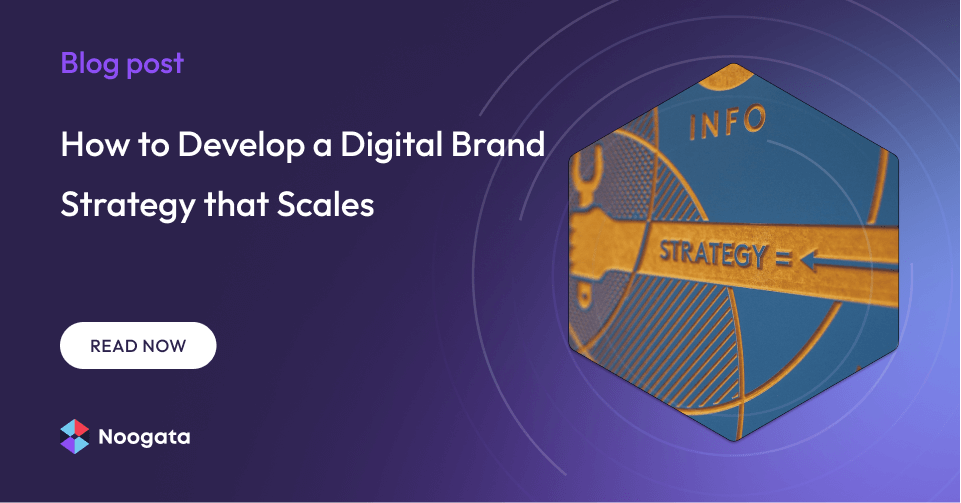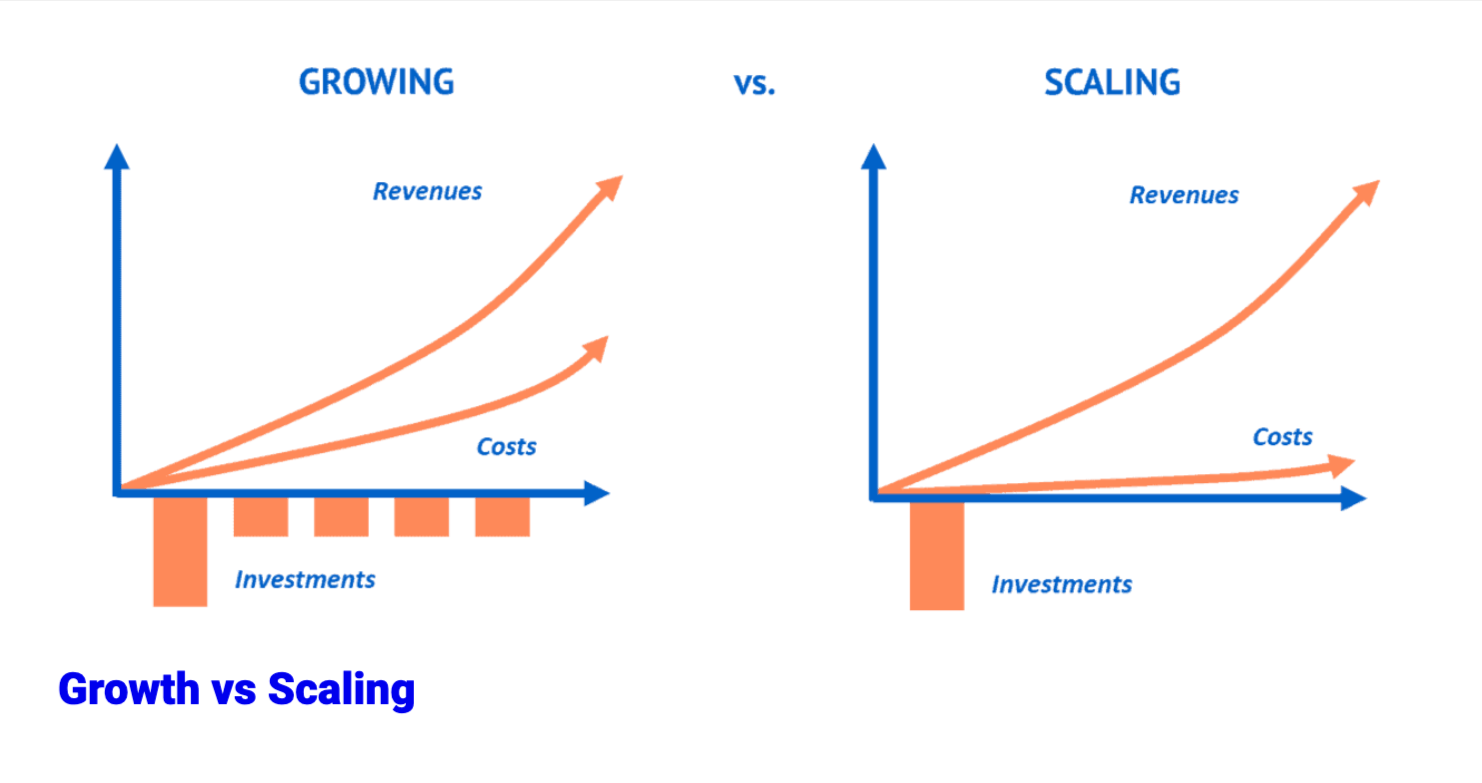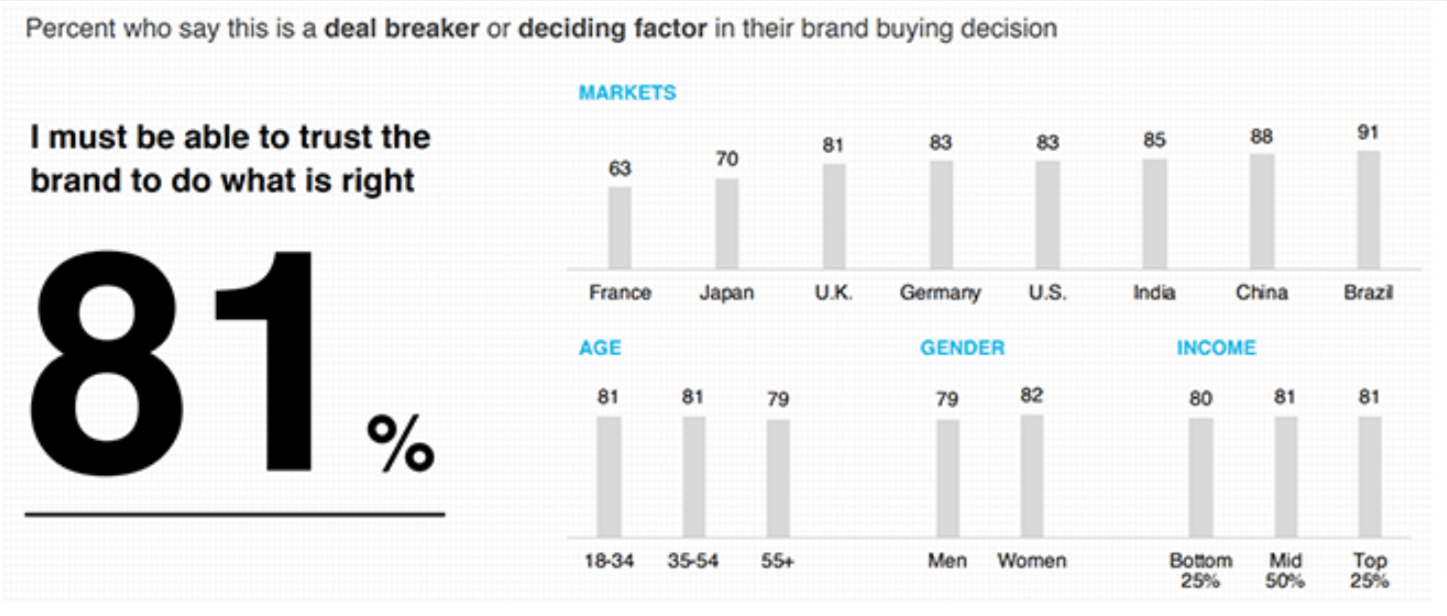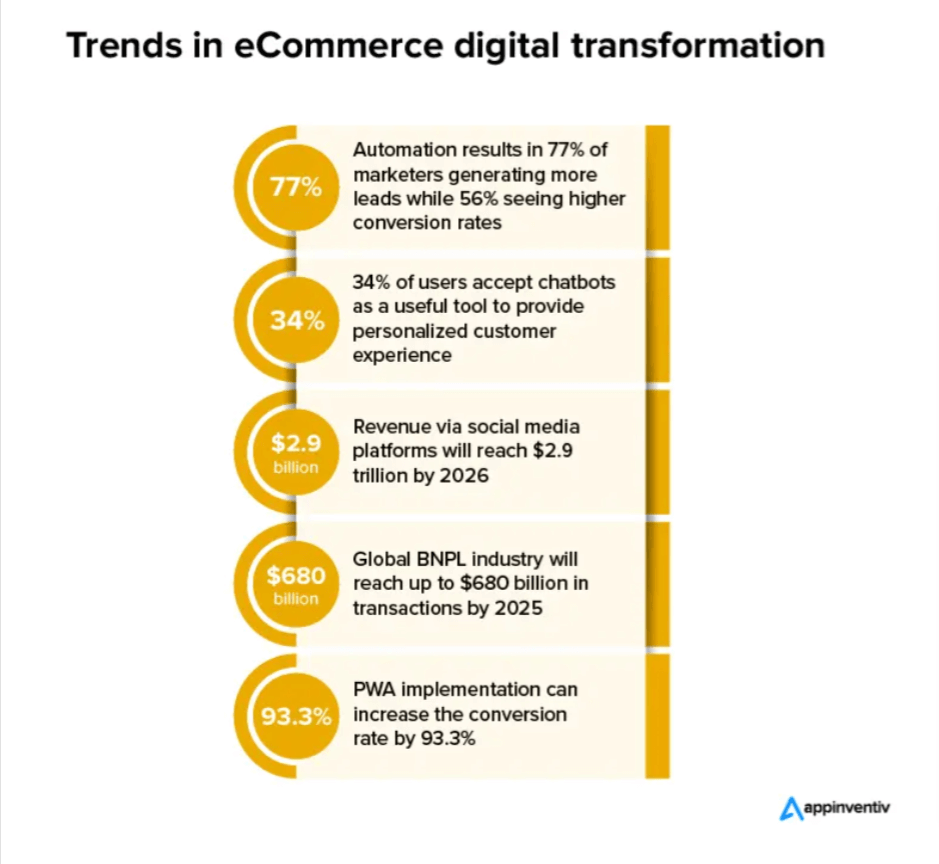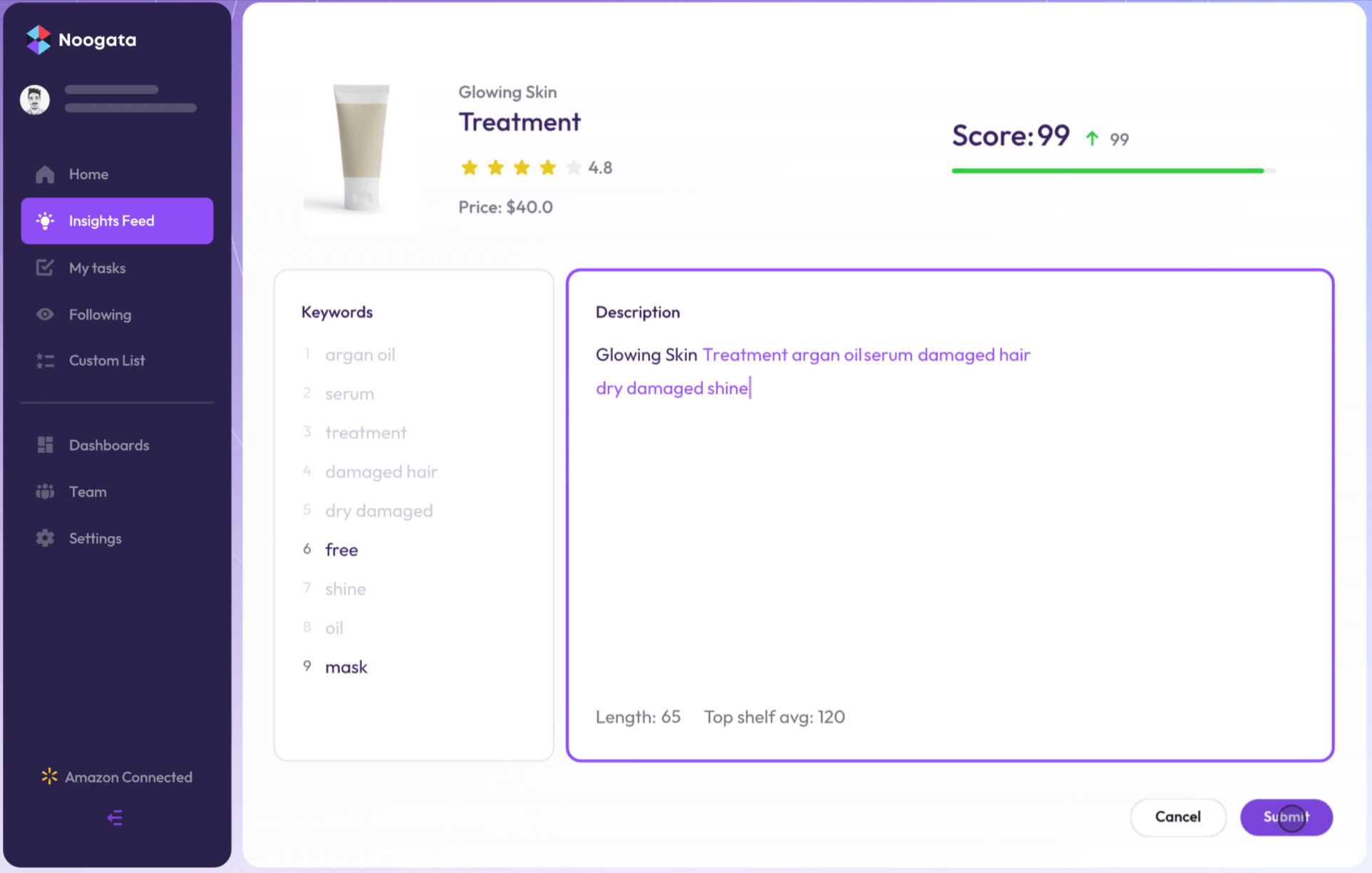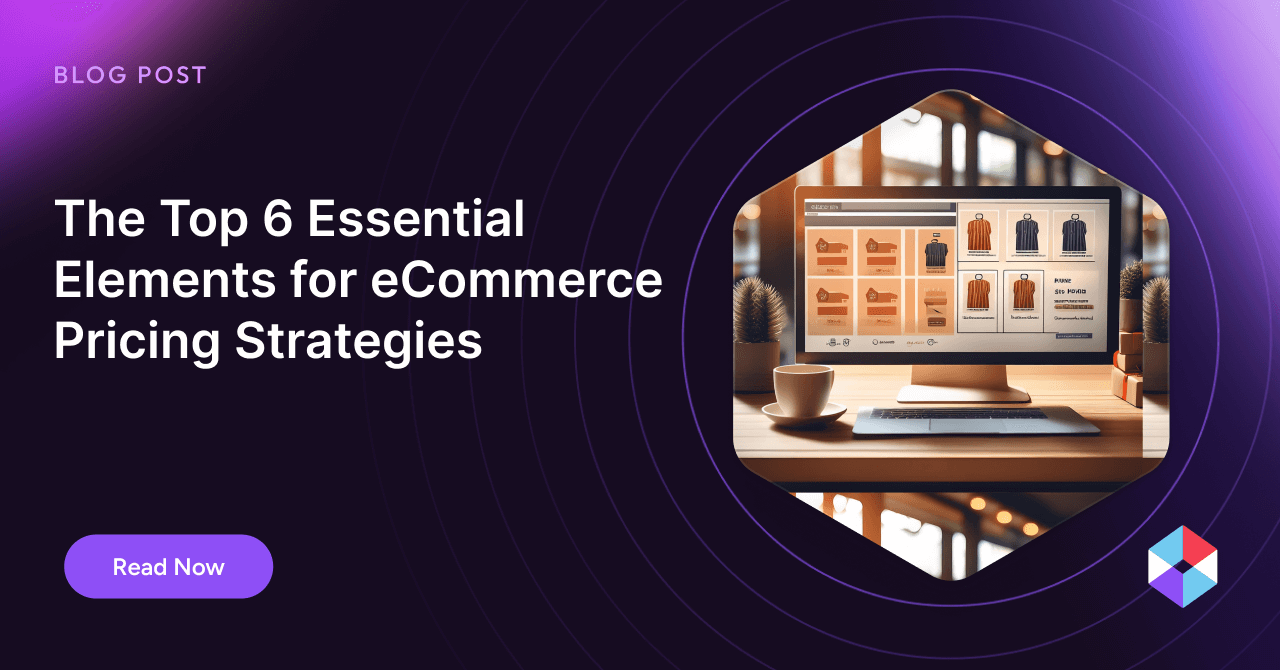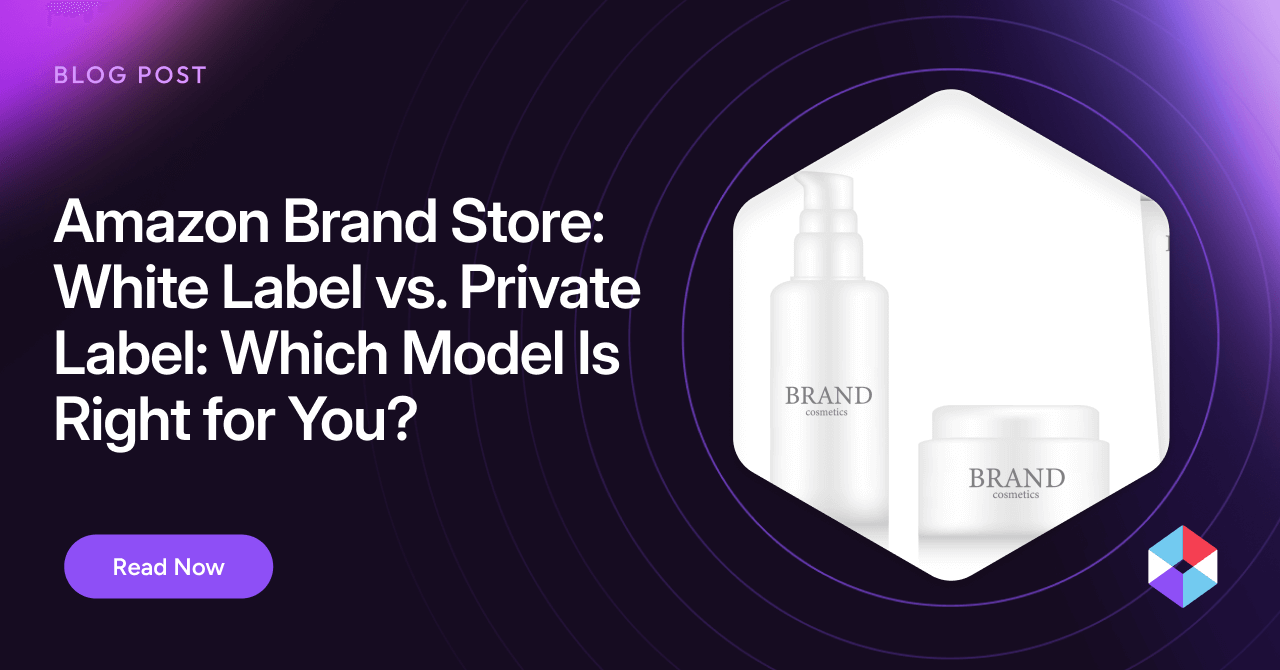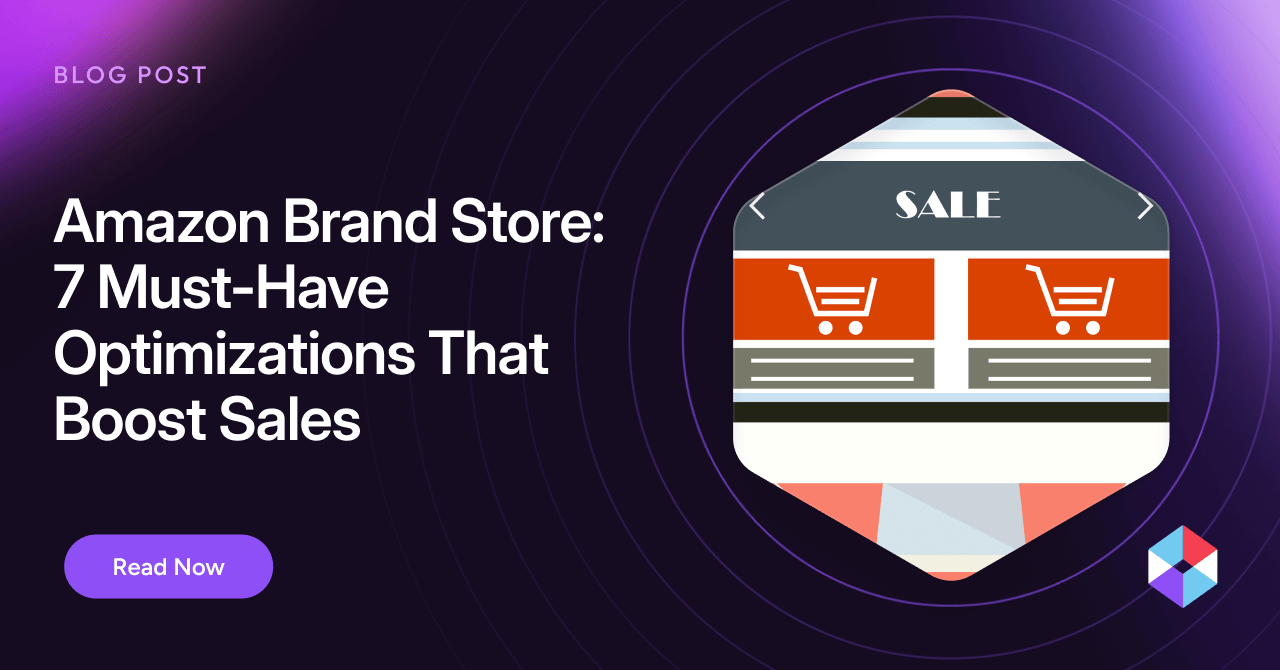The dramatic expansion of eCommerce over the past few years has pushed many retailers to their make-it-or-break-it moments. To thrive in a competitive marketplace that spans the globe, winning your target audience’s hearts and minds with effective branding is as important as delivering quality products and excellent customer service.
For more than eight out of ten consumers, trustworthiness is a deciding factor in determining which brands they’re willing to support. This means that brand recognition alone isn’t enough to convert leads and increase revenue. In today’s era of eCommerce, you need to control the narrative around your brand and ensure that consumers receive consistent, positive impressions. To achieve this, you need a digital brand strategy.
Global eCommerce sales are projected to exceed $6.3 trillion in 2023, and scalability is critical to maximizing your revenue as an online retailer. This post will explain how you can develop a digital strategy that helps you create your desired brand image and meet your revenue scaling goals.
What is a Digital Brand Strategy?
Your digital brand refers to the way audiences perceive and understand your company through its presence on the web, social media, and other online channels. To define your brand in an intentional way that serves your business needs, you need a digital brand strategy to guide your decisions.
Every interaction with customers and industry peers shapes your digital brand image. On the internet, you’re always “on,” and your brand is constantly evolving. You can stumble into a viral moment by accident and find yourself under scrutiny by an audience many times bigger than the one you’ve been trying to build through your marketing efforts. The speed and intensity with which opinions can shift around your brand can throw the largest, most experienced businesses off their game. Following a deliberate strategy gives you more say in what people are thinking and saying about your brand.
But a robust digital brand strategy isn’t just about keeping you out of crisis mode. It’s about developing a brand identity that directly serves your business goals, helping you expand your customer base, drive sales, attract top-tier talent, and earn more revenue.
What’s the difference between scaling and growth?
Although “scaling” and “growth” can seem like interchangeable ways to describe expanding your business, they actually refer to two different approaches.
Growth means your business is increasing revenue and adding resources proportionally. In other words, you’re supporting revenue expansion by taking on new expenses—hiring people, opening up new facilities, and launching new products.
Scaling means increasing your revenue while minimizing your investment in new resources. More customers are buying from you, but your costs aren’t going up at the same rate.
Scaling is often seen as more desirable because you’re bringing in more revenue while your expenses only increase incrementally, if at all. For some businesses, scaling isn’t possible—a construction company can’t take on more projects without adding more workers, equipment, materials, and other resources.
In eCommerce, exponential scaling becomes a much more attainable possibility. Websites, email campaigns, social media outreach, and other digital marketing tools can reach 100,000 targets as easily as they can reach 100. If you can figure out how to connect with a larger audience and win them over, there’s no limit to how big or fast you can scale your business.
How to Scale a Digital Brand Strategy
As an intangible asset directly affecting your audience’s willingness to buy from you, your brand reputation is critical in scaling your business. Following a digital brand strategy will help you make the right choices to cultivate a brand that supports scalability.
A digital brand strategy that scales doesn’t have to be built up from scratch. You can choose a tested strategic approach built around a particular brand image or methodology. Here are some time-tested ways to build a strategy that scales:
Scaling Through Purpose
One way to leverage your brand image to scale up your reach and generate sales is to instill it with a meaningful sense of purpose. With 77% of consumers preferring to shop from brands that share their values, it’s clear that there are tangible benefits to standing for something more than just making a profit.
A meaningful brand purpose could be environmental stewardship, investing in a local community, elevating marginalized groups, or supporting the arts. Whatever you choose, your commitment to a purpose must be authentic, not just a tactical marketing ploy. As important as shared values are to consumers, they value authenticity even higher—88% of consumers list it as a factor in their purchasing decisions.
Patagonia is a classic example of a purpose-driven brand with undeniable authenticity. As a maker of clothing and gear for people who love outdoor adventures, Patagonia earns the trust of its customer base by supporting environmental causes and rejecting mindless consumption, not just in its marketing but in the underlying philosophy that shapes the way they design and manufacture products. On digital channels such as social media, they share stories and information consistent with their brand image and highlight their actions to live up to their values.
By honing in on the values you share with your customers and building your digital brand around them, you can organically develop a positive reputation and reach new audiences through social sharing and word-of-mouth.
Scaling Through Awareness
If you’re looking for a straightforward way to scale your business, you can always lean into one of the key elements of any digital branding strategy: raising awareness of your brand.
No consumer can have an opinion about your brand—positive or negative—unless they have some familiarity with it. Making consumers aware of your brand is crucial to establishing a positive impression and earning their trust. On average, it takes about five to seven encounters with a brand before a consumer will remember it. A digital brand strategy based on awareness needs to create many opportunities for consumers in your target audience to see and hear about your brand.
It’s also important to note that a strategy that scales well won’t just focus on the number of impressions but also their quality. Whoever came up with the old adage that “all publicity is good publicity” was definitely living in a time before it was possible to get roasted on social media for both real and perceived faults. A good strategy will put you in control of the context and narrative surrounding the impressions consumers are likely to receive, molding their opinions through consistency and positivity.
In 2021, the social discussion site Reddit took a big risk on a novel attempt at raising its brand awareness, spending nearly a million dollars on a single five-second Super Bowl ad. It was one of the strangest and most memorable commercials that year, and suddenly people who had never heard of Reddit before were talking about it.
While this isn’t an example that most brands will be able to emulate, it does show how thrusting yourself into the spotlight before a massive audience can generate the kind of awareness that leads to rapid upscaling.
Scaling Through Digital Transformation
Digital transformation is the process of changing the structure and culture of an organization so that it can compete more efficiently in today’s interconnected digital marketplace. Undergoing digital transformation can be a brand-redefining event that serves as a springboard for accelerated expansion.
Digital transformation is often necessary to provide businesses with the organizational framework and procedures that support scaling. Switching to cloud-based platforms, becoming mobile-friendly, embracing new eCommerce trends, automating your processes, and using artificial intelligence to streamline operations are just a few examples of digital transformations that can help you scale up your sales revenue.
Even a venerable retail giant like Walmart can illustrate the power of digital transformation. By expanding its eCommerce offerings, jumping on trends like in-store pickup, and adding innovative features like voice and visual search to its mobile app, Walmart has been able to stay competitive against newer, natively digital companies like Amazon.
When you’re going through digital transformation, that’s an essential part of your brand story. Your digital brand strategy should highlight the changes you’re making and show a new generation of potential customers that you’re relevant, forward-looking, and in tune with their shopping preferences.
Scaling Through Digital Marketing
No matter what you choose as the centerpiece of your digital brand strategy, the execution of your strategy will largely be carried out by various digital marketing campaigns.
Content is the backbone of successful digital marketing efforts. The best way to ensure your campaigns meet your branding goals is to tell your story with relevant, compelling, and innovative online content. Two things are particularly valuable for brands trying to establish authenticity and build trust: user-generated content and advocacy campaigns from influencers and other parties who can operate independently from the official “brand voice.”
Consumers have come to expect personalized content from brands that care about connecting with them. Eight out of ten consumers are likelier to buy from brands that provide personalized experiences. Small day-to-day interactions—like acknowledging feedback, product reviews, and social media mentions—can also contribute toward a user-centric brand image.
To pull off these tactics effectively, it helps to have high-quality digital marketing software that allows you to leverage the power of big data, generate actionable insights through AI, automate content production, or orchestrate the many touchpoints of the buyer journey.
Scaling Through AI-powered Decision Making
Digital commerce generates vast amounts of data that can provide you with a wealth of detailed information about what consumers want from brands, products, and the overall shopping experience. By analyzing transaction histories, user behavior, market trends, and competitive intelligence, you can build your digital brand strategy on a foundation of solid, trustworthy data.
Revenue scaling is all about optimizing the performance of your existing resources. Data-driven decision-making processes will consistently ensure you make the most effective choices about what products to develop and stock, where to set your price points, how to market your goods, and which audience segments you should target.
Internal data can help you make better decisions about shipping, customer service, billing policies, and other business operations that impact consumers’ perceptions of your brand.
While the data needed to make optimal business decisions may be within close reach of any eCommerce company, extracting the most accurate and beneficial insights requires the right analytical tools.
Platforms like Noogata that utilize advanced monitoring capabilities in conjunction with AI and machine learning models are ideally suited to serve as the brains behind a digital brand strategy that scales
Scale Your Brand with Competitive Intelligence Insights
Consumers in today’s online global marketplace have more choices than ever when deciding who gets their business. They hope and expect to find companies that share their values, work hard to earn their trust and provide great products at a reasonable price. Branding is how to communicate to these consumers that your company is the one they’ve been looking for. It takes a strong digital brand strategy to convey this message and generate cost-effective revenue scaling successfully.
Like the proverbial angel trapped in the sculptor’s marble, there’s an ideal brand image for every company—but you won’t always be able to see what it is until you start creating it. Using data analytics to steer your process, you can make the most informed decisions about what strategic approach to take, how to design your digital marketing campaigns, and how to make fundamental decisions about products and pricing.
With a competitive intelligence engine like Noogata guiding your journey, you can optimize your digital brand strategy to unlock exponential revenue scaling potential. Try a free demo today and see how easy it is to scale with actionable insights and competitor intelligence that give your brand the edge over the competition.
